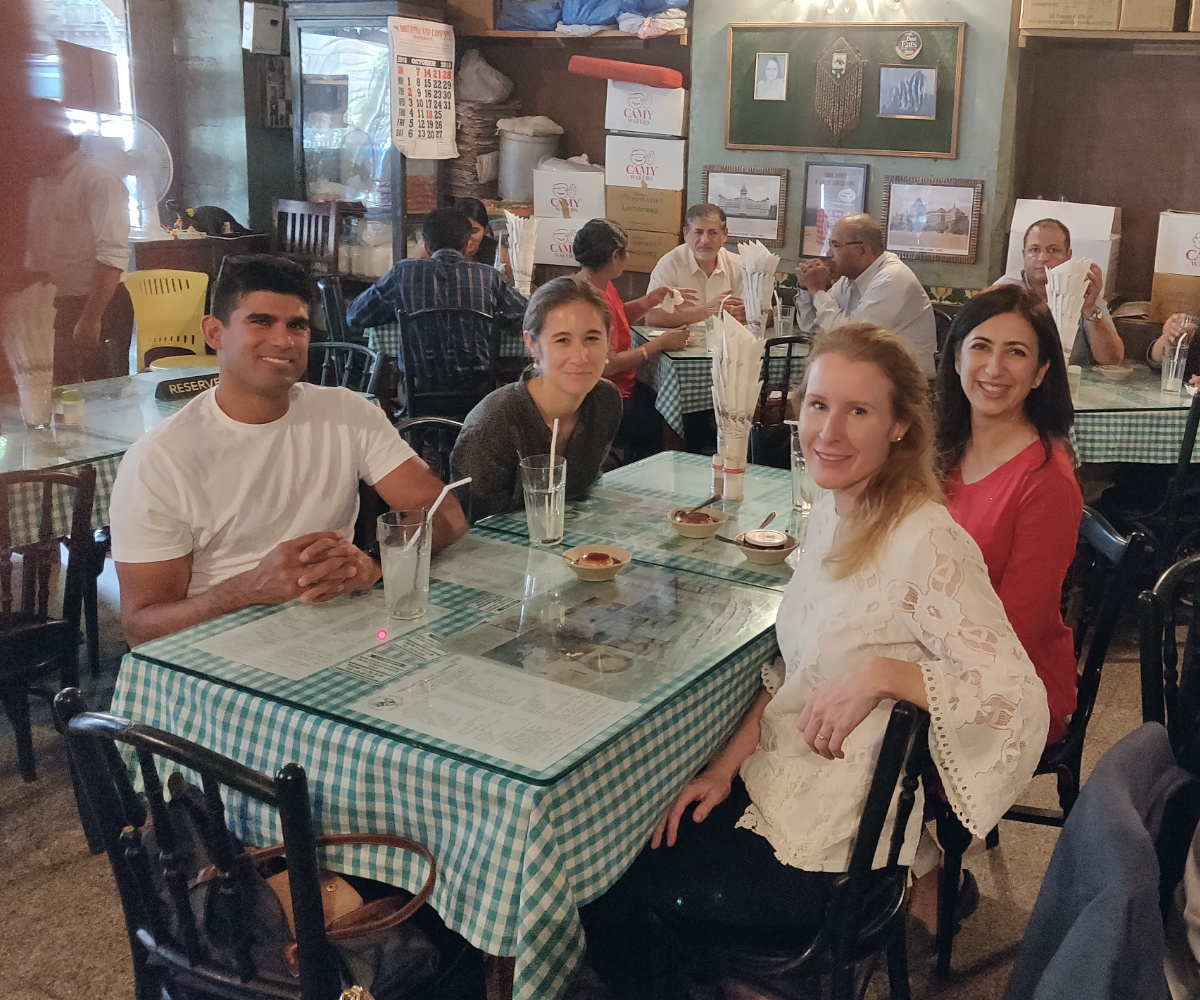
Owner & Finder of Resettle India: Shradha Mithal
Why did you choose global mobility? Or did it choose you?
A combination of the two. My husband is a third generation mover and packer. I’ve heard a lot of table chats over the years. And being in the family business, of course, we pitch in where we can. So that was my first engagement with this industry. My background is actually in corporate; GE, Unilever, and an Australian bank. But I wanted to step away from a corporate career and towards entrepreneurship. So we started with clients we already had. And in 2016, we started with our first corporate clients.
Who was your first corporate client? We always remember our first.
It was AB in Bev; Delhi to Bangalore – 50 people. It was my first learning curve.
What exactly does your company do each day?
When we started, we were a destination service provider only. From look-sees and orientation visits to help the clients understand where they are moving to. We encourage clients to come with their family to know what the host city will be like. Also, we do school search and tenancy management, spousal support, and recently we started an immigration desk too.
Where do you want to travel to and why?
We would’ve been sipping some lovely Spanish wine at the EURA conference right now. It ended 2 days ago, and I can imagine myself traveling around Spain. It was on my bucket list, and it remains on my list.
What keeps you awake at night?
That’s a tough one right now. It’s cash flow and trying to hold onto employees we’ve had for so long. Surviving in the short-term. Plus ongoing communication so that clients feel safe and secure where they’re at. Whether someone is evacuating or staying in place. The challenges would’ve been very different if it was a regular May. We would’ve been focused on customer service.
Global Mobility Current Events & Trends
What do you see changing in global mobility in the next 10 years?
That’s tough given the circumstances. In the last 4 years I’ve seen a lot of changes: different nature of assignments, shorter assignments, less being shipped, more rented furniture. I think going ahead we’ll have to change the way we work. Collaboration will be important. I think we need this more.
Also, a lot has been discussed about the New Millennial. This new client might ask: do I want the red carpet, do I want it virtually, or do I want to see the house first? The feedback at the end of an assignment tells us a lot about where things are going. A lot more technology will be adopted, I believe.
Any trends you can share with us?
Lump sum, versus high touch, 1 year assignments. Clients just coming with suitcases and clothes and stepping into a house that’s already set up. Short, efficient, to the point services.
Of course, employers are trying to maximize their cost. They’re focusing on limiting this amount of money.
Also, the assignee experience has been interesting. Higher positions, C-Suite versus new millennials – those beginning their careers. It seems to be a different kind of communication.
What do millennials want?
Cross cultural training is important for them, and some don’t opt for that. But I see this training as easing their transition into the country. You want them to immerse themselves in the experience, rather than, “I have to be here for a year and then get out.” It’s a new way to discover yourself, not just moving up the corporate ladder because of a year abroad. We can help the assignee deal with their life in a new, more manageable way.
Biggest need in global mobility today?
The biggest need is flexibility. I know we offer these cookie cutter solutions like a 3-day home search or 1-day. But no two people are the same, and no two companies are the same. You train your consultants to manage assignments in a certain way, but you have to be flexible. We have a tagline: relocation with care. So we try to stick to that.
How has COVID affected your business? Your clients?
Who knew 2020 was going to be like this? What you realize is that working from home is not that hard. A lot can be done with the family all around you. Right now, the borders are shut down. There is nothing we could do about it. We’ve had a very strict lockdown here in India. Even borders between states have been shut down. So even inter-country moves – like Mumbai to New Delhi – isn’t possible.
One challenge was getting assignees home if they were traveling. Some were on spring break, so we had to get them home quickly. There was a lot of ambiguity with the visas. For assignees, we have to make sure they can get the basic necessities. Typically they rely on a driver to get the water, groceries, etc. How do they get their basic supplies? So our teams were given special passes by the government, so we could get necessities to our clients.
But it’s taught us a lot: to be resilient, to work together, to make the best of the situation. We’re not the only ones in it. This is the whole globe. It’s been a great time to speak to other relocation companies, actually. We’re not competing for the first time. We’re asking each other, how can I help you? What are you doing? We have an extra employee. Do you need help?
Challenges & Surprises When Moving to India
What’s the biggest challenge you see clients have moving to India?
I think the international press makes India sound like a really unsafe country. I think this is the biggest misconception. This is a great place to be! Investments all coming in, rich in expat culture. If you’re in Bangalore, or Mumbai…. There’s so much culture, and there’s lots to discover. Safety is NOT an issue.
Our clients end up embracing a lot of traditions and cool things that even I haven’t done in my own country.
Biggest surprise for people moving to India?
Definitely people are surprised at how many people speak English here. You can really get by with almost everyone here. It might be broken English sometimes, but you can get by. There is some version of English that flows throughout the country, so even if you’re speaking to the local vegetable vendor, or the Uber driver, you can get what you need with the level of English they have.










